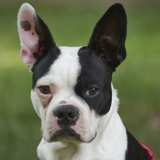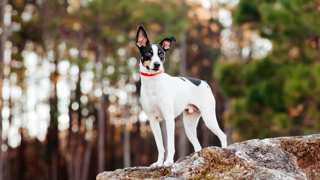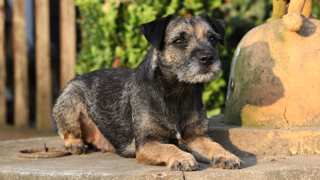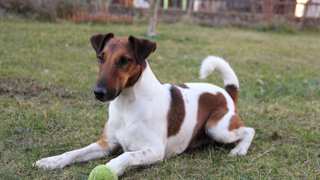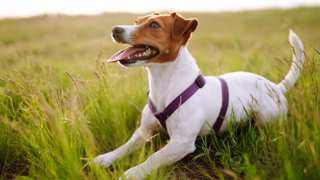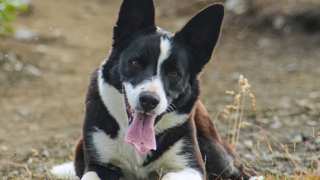Though a lively breed, Boston Terrier exercise needs aren't excessive--but they should be frequent. These dogs get constant (but short-lived) "bursts" of energy, so they'll need daily "playtime" in addition to a good walk or jog. And as a well-built, athletic breed, a Boston can be exercised starting relatively early in puppyhood (4-6 months).
Be aware, though, that Boston Terriers don't do well in temperature extremes. Because of their short coats, they get cold rather easily; due to their short noses, they're brachycephalic (meaning they can't cool the air they breathe as well as longer-nosed breeds), so they can suffer heat stroke in hot temperatures. Exercise a Boston outdoors only in moderate temperatures, and keep the dog inside during hot or cold snaps.
Boston Terriers are interesting: they can curl up in their owners' laps for an hour or more--but the second the owner gets up, they'll be a dynamo, running and jumping throughout the house. So several exercises (both indoors and out) are recommended:
- Fetch: Can be done indoors or out, with a ball, stick, or chew toy
- Frisbee: Great exercise for these lively, athletic dogs
- Walk or jog: Short to moderate (about 30 minutes) should be adequate
- Hide & seek: Good indoor activity during extreme hot or cold weathe
- Hiking: Be sure to do it in moderate temperatures, and bring plenty of water!
With Boston Terriers' sporadic energy bursts, having a ball or toy lying around for the dog to fetch is the perfect remedy for their restlessness. It's a good idea to also stick to a regular daily exercise routine, such as two or three short "play periods" during the day, followed by a good walk after dinner.
